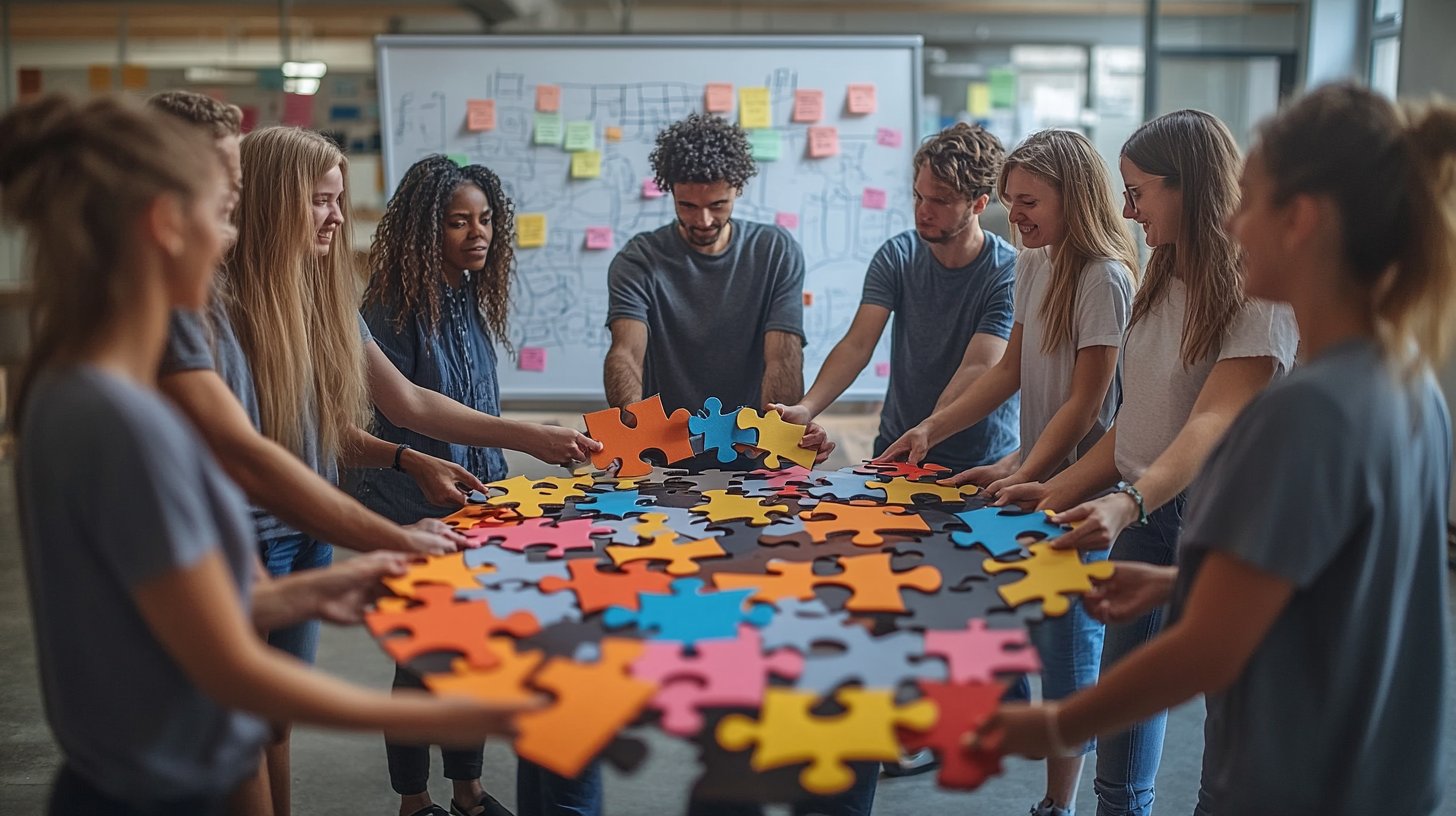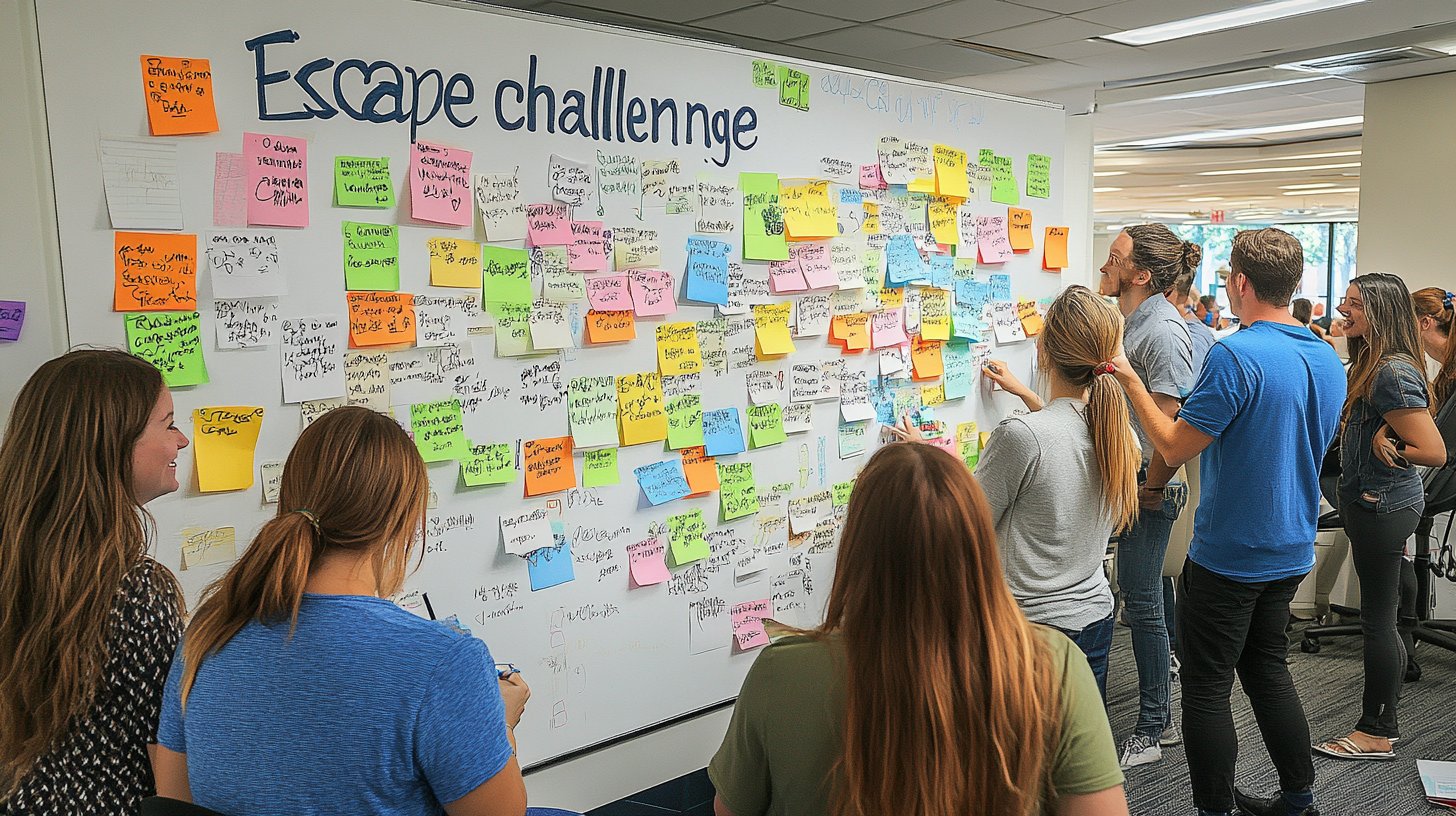Are you looking to strengthen team spirit within your company? Daily challenges, tight deadlines, or even the distancing caused by remote work can weaken communication and reduce employee engagement. You aspire to rekindle a collective dynamic but don’t know where to start.
Team-building activities offer a practical solution to create strong bonds among colleagues. These moments of sharing help improve collaboration, stimulate creativity, and strengthen employees’ connection to the company. However, selecting meaningful and suitable activities requires thoughtful planning and preparation.
How can you organize a truly effective team-building event? What types of activities best meet your team’s expectations? Here, you’ll find clear answers tailored to your needs. We cover the types of games, their benefits, and practical ideas for successful organization. Get ready to transform your team’s energy!
Defining a Team Cohesion Game
A team cohesion game, also known as a team-building activity, refers to any playful activity organized to foster team spirit and improve communication within a work group. The primary goal is to create positive interactions among team members, thereby boosting their motivation and productivity.
These activities can vary widely. They include physical challenges, intellectual games, or collaborative artistic experiences. Whether it’s a simple orienteering race or a painting workshop, each activity aims to bring participants closer and strengthen team cohesion.
The Benefits of Team Cohesion Games
Strengthening Collaboration
Strengthening collaboration is at the heart of team cohesion games. By participating in these activities, employees learn to understand each other better and work together on common tasks. This promotes better synergy in daily operations, where everyone knows their colleagues’ strengths and weaknesses and how to maximize collective potential.
Repeated interactions during games enhance communication skills and help teams develop effective strategies for solving common problems, contributing to an overall improvement in group performance.
Improving Communication
Another major advantage lies in improving communication. Team-building games often require participants to discuss, plan, and make decisions together. These exchanges can help break the ice among colleagues who previously didn’t know each other well.
Participation in these activities also develops the ability to actively listen and articulate ideas clearly—crucial skills in the professional context where effective communication makes all the difference in project success.
Types of Team Cohesion Games
Physical and Sports Games
Physical activities are often the first thing that comes to mind when talking about team cohesion games. Here are some popular examples:
- Obstacle courses: Ideal for learning to work under pressure and support each other.
- Team sports (football, basketball, etc.): Enhance strategy and fair play.
- Group hikes: Promote mutual assistance and communication during physical effort.
These games not only stimulate group dynamics but also improve physical fitness, yielding benefits beyond social interaction.
Creative and Artistic Workshops
Creative workshops offer an interesting alternative to purely physical activities. They allow individuals to express their creativity while working together. Examples include:
- Mural painting workshops: Encourage individual contributions to a shared project.
- Improvisational theater: Develop spontaneity and quick reaction skills.
- Music creation sessions: Require participants to harmonize their efforts to produce a satisfying result.
These types of activities provide a sense of shared accomplishment and strengthen the sense of belonging to a community.
How to Organize a Successful Cohesion Day
Planning and Logistics
Organizing a cohesion day requires rigorous planning. Start by clearly defining the day’s objectives: improving communication, resolving existing conflicts, or simply strengthening relationships. Choosing activities suited to the tastes and physical abilities of all participants is essential for ensuring their engagement.
While some may prefer athletic challenges, others will feel more comfortable with less physically demanding activities. Diversifying the options offered can be an excellent strategy to satisfy everyone.
Supervision
Supervision also plays a crucial role. Hiring team-building specialists to lead workshops and games is recommended. These experts know how to motivate participants and ensure that everyone benefits from the experience.
They have the necessary skills to quickly assess group dynamics and intervene effectively when needed, keeping everyone focused on the goal of team cohesion strengthening.
Case Study: A Successful Cohesion Day
Preparation
Imagine a company wanting to organize a cohesion day for its employees after several months of intense remote work. Management has noticed a significant drop in morale and wants to address this by bringing everyone together for convivial activities.
Implementation
The day begins with an improvisational theater workshop in the morning. Employees are divided into small groups and must perform improvised scenarios on various themes. This activity helps release tension, provoke laughter, and uncover hidden talents.
The afternoon continues with a group hike in the surrounding nature, providing an ideal opportunity for informal discussions and moments of camaraderie. The day ends with a culinary challenge where each team must prepare a dish from imposed ingredients. Guaranteed moments of complicity!
Results and Analysis
By the end of the day, the goal is achieved: every employee leaves with a smile and a renewed sense of belonging to the company. Spontaneous discussions reveal that bonds have been formed, and the general energy feels revitalized.
This type of experience demonstrates that team cohesion games have a tangible impact on the quality of professional relationships and significantly contribute to improving the work environment.
Summary Table of the Benefits of Cohesion Games
| Type of Benefit | Description |
|---|---|
| Strengthening Collaboration | Promotes synergy and maximizes collective potential. |
| Improving Communication | Develops the ability to actively listen and articulate ideas clearly. |
| Sense of Belonging | Creates a climate of trust and unites teams. |
| Conflict Resolution | Facilitates mediation and arbitration through specialized games. |







